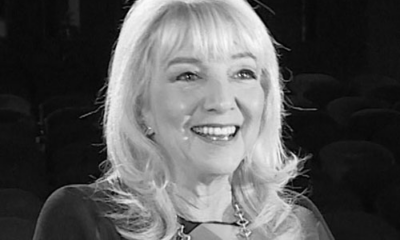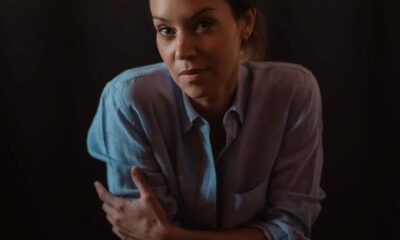
Reviews

Finding Rosetta – a heartwarming way of finding yourself
Finding Rosetta, a new one-woman play by Paul Slabolepszy, paints a picture of a midlife crisis turned self-discovery journey with an alien twist. The play, directed by William Le Cordeur and presented by Daphne Kuhn & Starstruck, opened at the Theatre On The Square on 14 September.
This quirky one-woman production navigates themes of family, friendship, spirituality, art, eco-consciousness, and our cosmic insignificance.
Rose, played by the captivating Annie Robinson-Grealy, is an artist who begins the play painting her beloved mountains – uKhahlamba – as her carer, Mama Nellie, taught her. She tells the story of her childhood in Rosetta with her father, who believed in signs and fate, and her mother, who wouldn’t hear of that nonsense.
Fast forward 50 odd years, after a fight with her husband, Rose hits the road, blasting Joni Mitchell, until her car breaks down in the middle of the KwaZulu-Natal midlands. In a serendipitous turn of events, she reunites with a childhood friend, Felicity, who offers her a place to stay while her car is being fixed. While staying in the small village of Rosetta where she and Felicity grew up, she discovers not only her old diary but also the autobiography of Elizabeth Klarer, a woman who claimed to have encountered aliens, titled Beyond the Light Barrier. Rose is immediately drawn to the woman’s story, and is certain she has seen her before. Over the following days, she spends her time in Rosetta looking for connections, discovering herself along the way. She also learns important lessons about our place on this earth and the need to care for our planet.
Robinson-Grealy effortlessly delivers what is essentially a 70-minute monologue, with more than five different characters. It’s hard to picture that there’s only one person on stage as the characters feel so real. The accents, voices, and mannerisms are distinct to each character and make even moments of dialogue feel authentic. The storytelling is logical and easy to follow, which is often difficult to achieve in a one-person show. The writing also shares and creates an appreciation of different cultures and beliefs without appropriation.
The set is realistic and immersive, but also serves as more than one location, the main elements being a canvas, a desk, and a bench, with important props such as art supplies, a cellphone, and a kettle. Props are used effectively, most having multiple purposes, for example, a simple blanket becomes the outfit that her nanny wore; the head covering of the mysterious old man; her shoulder wrap; and a picnic blanket. The projected images are the star of the show, however, in Van Gogh-esque style, with large, dramatic brush strokes that move and swirl to follow the story. Painting becomes a central motif of the story as Rose’s creative outlet and means of storytelling.
The lighting is subtle but potent, with slight changes in brightness and colour temperature to denote whether we are indoors or outdoors. Moments of tension use slightly more dramatic lighting, adding in some colour, such as her meeting with the mysterious man near the woods, where a green light is used. Moments of soliloquy and introspection use a warmer spotlight, which feels intimate.
The music and sound ranges from traditional African, to Bollywood, to Joni Mitchell, to alien whirs and supernatural sound effects. Dance is also an important motif, particularly between Rose and Felicity, who once dreamed of joining the Martha Graham Dance Company.
Finding Rosetta is funny and heartwarming, and leaves audiences pondering their existence and role on this earth. Slabolepszy’s writing gives new meaning to the story of Elizabeth Klarer, the “Daughter of Rosetta”, and Robinson-Grealy’s acting brings the story to life in a compelling manner. Overall, the play felt very real and human, perhaps barring the aliens.
Finding Rosetta is at the Theatre on the Square until 30 September.
- Hanna Resnick is an intern at the SA Jewish Report.










